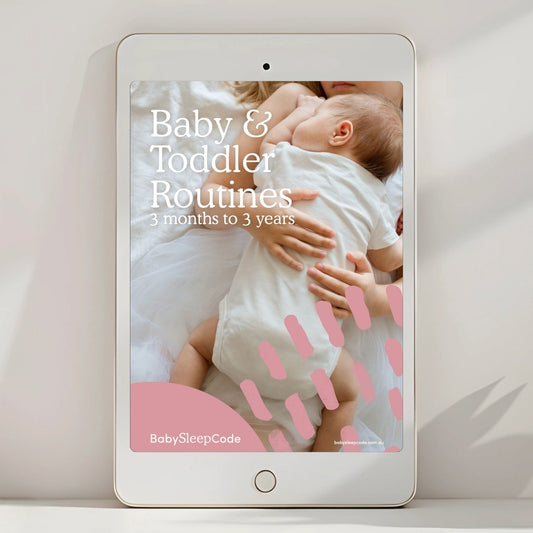What are false starts?
False starts at bedtime can look like a baby waking every 10-20-30 minutes just after being put down for sleep until they finally settle in for a longer stretch of sleep.
This usually happens with newborns but can happen for older babies as well. They are usually still quite sleepy when they wake and are settled back to sleep relatively easily, but just don’t seem to get into a deep sleep until a bit later in the night.
If your baby wakes around 45 minutes after bedtime and is much harder to settle to sleep, this is not what we typically refer to as a false start. Instead, read our blog 'Baby treating bedtime like a nap'.
What causes false starts at bedtime?
It can be so frustrating and emotionally taxing when you finally get your baby down for bedtime, only for them to wake again shortly after. Here are some common reasons for false starts:
Inappropriate Daytime Schedule
You might have heard that overtiredness can cause false starts at bedtime, and you might have also heard that undertiredness can be the culprit. While it sounds confusing, it's true—what happens during the day affects nighttime sleep.
Wake windows, nap lengths, and nap timings all play a role. Instead of guessing whether your baby is overtired or undertired, grab your baby’s age-appropriate routine. This ensures your baby gets the optimal daytime schedule to support a great night’s sleep without the confusion.
They’re Hungry
If your baby was sleeping a lot in the afternoon, they may have skipped a feed and are now just playing catch up. Or if your baby didn’t have a substantial feed before bedtime, they may wake again shortly after just wanting a little top-up before settling in for the night. This can happen if they’re getting sleepy during the bedtime feed so consider moving it earlier or making sure they’re definitely finishing their feed.
Temperature
Being too hot or too cold can lead to wake-ups, as your baby may not comfortably make it through to the next sleep cycle. Read our blog on dressing your baby for sleep for tips to get it just right.
Sleep Associations
Older babies that require assistance to fall asleep, whether through rocking, a pacifier, or feeding, are likely just waking from their first night's sleep cycle and needing that same assistance to return to sleep. Want to help your baby gain confidence in falling asleep more independently? Check out our Sleeping Through the Night Baby Program.
Are false starts a part of a sleep regression?
Yes, they can be. For those between 3 and 6 months, if this starts happening, it can be an early sign of the 4 month or 6 month sleep regression. But you’ll typically start to notice other signs, like waking every 45 minutes during the day and more night wakes.
When do babies grow out of false starts at bedtime?
In those early weeks, false starts can just be your baby's way of topping up their milk tank a little more before they settle in for a slightly longer stretch between feeds. As their tummy grows, and they’re able to take in larger feeds across the day this wake after bedtime might naturally drop itself within the first two months. If it doesn’t though, or if your baby is newly waking shortly after bedtime, then it usually means something needs to change for things to get back on track.
Can teething cause false starts?
They can, as your baby might have had enough sleep pressure to fall asleep okay at bedtime. But as sleep pressure stars wear off and they come back into a lighter sleep phase, they may wake out of discomfort. But this won’t be a symptom in isolation, and if this wake is due to teething, it won’t last more than a couple of days. Read more about teething signs here.
So how do you stop false starts at bedtime?
Follow our age-appropriate routines to take the guesswork out of your days. These are designed with the ideal amount of day sleep timing, to ensure great nights.










